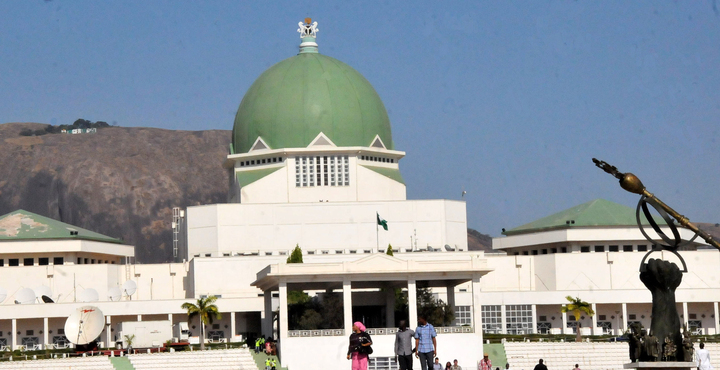Breaking free from the dollar: PAPSS and intra-African trade, By Odewale Abayomi

PAPSS is very beneficial for small and medium business owners transacting across borders. Banks will have fewer limits on the funds they set aside for settlements, freeing up more financial resources for value-added services and initiatives. Notably, these banks will minimize their dependence on scarce hard currencies for transactions between two African markets.
At a recent forum on the African Continental Free Trade Area (AfCFTA) in Nairobi, Kenya, Kenyan President William Ruto called on African leaders to accelerate the adoption of the Pan-African Payments System and (PAPSS) by both their central and commercial banks, to reduce pressure and reliance on the bullish US dollar for intra-African trade. The Kenyan President is deeply concerned about the fragmentation of the African payments landscape, with nearly 40 currencies in use across 54 countries, under various payment structures and heavy processing strategies, making free trade a Herculean task.
PAPSS, an African Union infrastructure developed in collaboration with the African Export-Import Bank (Afreximbank) to complement AfCFTA trade was officially launched in January 2022, as a market instrument centralized financial facility facilitating efficient and instant cross-border payments in local African countries. currencies, thereby minimizing risk and promoting regional financial integration.
During the forum mentioned above, Ruto asked, "From Djibouti selling to Kenya or traders from Kenya selling to Djibouti, we need to look for US dollars. How are US dollars part of the trade between Djibouti and Kenya? Why?"
"This is why Kenya is championing the Pan-African Payments and Settlement System which is operated by our own institution - Afreximbank. Why Members? Why is it necessary for us to buy things from Djibouti and pay in dollars? There is no reason,” he said.

Before PAPSS, the Society for Worldwide Interbank Financial Telecommunication (SWIFT) was the main platform for African banks to conduct cross-border transactions, with an estimated loss of nearly $5 billion per year, which harms trade in African countries. It is quite ironic that it is faster and cheaper for Nigerians to receive and transfer money to distant Western countries than to those in Africa.
Currently, only nine countries, namely Nigeria, Ghana, Liberia, Guinea, Sierra Leone, Gambia, Djibouti, Zimbabwe and Zambia are part of the PAPSS network, out of the 54 African countries charged to trade under the AfCFTA through a single, open market that enables the free movement of goods, services, capital and people, and supports investment opportunities. Every central bank on the continent is expected to register and become a member of PAPSS by the end of 2024, while all commercial banks are expected to follow suit by the end of 2025. But the adoption process remains slow. /p >
Before the European voyages of exploration of the 15th century...


PAPSS is very beneficial for small and medium business owners transacting across borders. Banks will have fewer limits on the funds they set aside for settlements, freeing up more financial resources for value-added services and initiatives. Notably, these banks will minimize their dependence on scarce hard currencies for transactions between two African markets.
At a recent forum on the African Continental Free Trade Area (AfCFTA) in Nairobi, Kenya, Kenyan President William Ruto called on African leaders to accelerate the adoption of the Pan-African Payments System and (PAPSS) by both their central and commercial banks, to reduce pressure and reliance on the bullish US dollar for intra-African trade. The Kenyan President is deeply concerned about the fragmentation of the African payments landscape, with nearly 40 currencies in use across 54 countries, under various payment structures and heavy processing strategies, making free trade a Herculean task.
PAPSS, an African Union infrastructure developed in collaboration with the African Export-Import Bank (Afreximbank) to complement AfCFTA trade was officially launched in January 2022, as a market instrument centralized financial facility facilitating efficient and instant cross-border payments in local African countries. currencies, thereby minimizing risk and promoting regional financial integration.
During the forum mentioned above, Ruto asked, "From Djibouti selling to Kenya or traders from Kenya selling to Djibouti, we need to look for US dollars. How are US dollars part of the trade between Djibouti and Kenya? Why?"
"This is why Kenya is championing the Pan-African Payments and Settlement System which is operated by our own institution - Afreximbank. Why Members? Why is it necessary for us to buy things from Djibouti and pay in dollars? There is no reason,” he said.

Before PAPSS, the Society for Worldwide Interbank Financial Telecommunication (SWIFT) was the main platform for African banks to conduct cross-border transactions, with an estimated loss of nearly $5 billion per year, which harms trade in African countries. It is quite ironic that it is faster and cheaper for Nigerians to receive and transfer money to distant Western countries than to those in Africa.
Currently, only nine countries, namely Nigeria, Ghana, Liberia, Guinea, Sierra Leone, Gambia, Djibouti, Zimbabwe and Zambia are part of the PAPSS network, out of the 54 African countries charged to trade under the AfCFTA through a single, open market that enables the free movement of goods, services, capital and people, and supports investment opportunities. Every central bank on the continent is expected to register and become a member of PAPSS by the end of 2024, while all commercial banks are expected to follow suit by the end of 2025. But the adoption process remains slow. /p >
Before the European voyages of exploration of the 15th century...
What's Your Reaction?






















